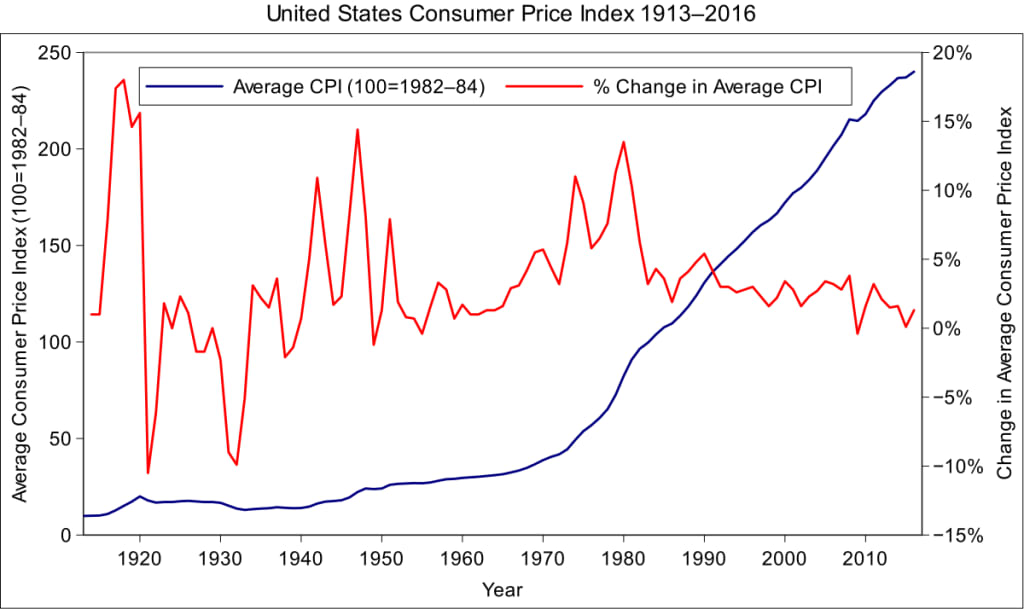
What is the consumer price index? It is an economic term that often gets a lot of coverage in financial news but whose actual meaning and definition remains elusive for the average person. The Consumer Price Index definition is officially known as the economic measure that examines the weighed average of the varied prices in a basket of consumer goods and services.
These goods and services can vary depending upon the CPI involved but some of the goods are usually transportation, food, beverages, health care, etc. Other examples used in the Consumer Price Index can include housing, apparel, recreation, education, communication, other goods and services, etc.
In order to get the correct Consumer Price Index, you need to be very careful with your calculations. In order to calculate the CPI, you have to take into account the price changes for each item in your self-determined basket of goods and services. After averaging the price changes together for each item in your basket, you’ll be able to get the correct Consumer Price Index.
Changes to the CPI help economists to adjust the cost of living for people based off the price changes going on with a varied amount of goods and services. Compared to many other economic measurements, the Consumer Price Index is perhaps the most useful in determining both the rate of inflation and the rate of deflation. In order to prevent future economic recessions or stagflations, the CPI is an important index to watch and monitor, making its correct calculation a necessity. No CPI is going to be exactly the same as another index due to the fact that different goods and services could be measured against each other in different quantities. It’s important to make sure that your Consumer Price Index is in line with other estimates.
In terms of who’s in charge of reporting an official Consumer Price Index, the U.S. Bureau of Labor Statistics does so on a monthly basis. There are two types of CPI to be aware of: one of which is the CPI-W that records the Consumer Price Index for Urban Wage Earners and Clerical Workers while the CPI-U is the Consumer Price Index for Urban Consumers. For the CPI-U, it usually takes into account the CPI for almost 90% of the U.S. population and is a pretty good representation of the general public’s spending habits. Because of this, the CPI-W is considered a subset of the CPI-U and only represents about 30% of the U.S. population.
The importance of the Consumer Price Index lies in the fact that it is a statistic that helps to formulate and draft fiscal economic policies based on the monthly updates. Inflation and deflation numbers are also defined based on the findings of the Consumer Price Index on a monthly basis. The CPI’s utility is highlighted by the fact that it is supposed to be used by policymakers such as the President, Congress, and the Federal Reserve Board. The CPI goes a long way to showing economic forecasters how the economy is doing overall.
The Consumer Price Index is supposed to hit a rate of 2% or under each time it’s measured according to the U.S. Department of Labor. Even if the CPI goes above 2% due to inflation, it’s not worth it to panic for any reason. This is because of the fact that borrowing rates can be raised in order to offset any cumbersome inflation in the markets. The Consumer Price Index covers a huge swath of the population including professionals, poor, unemployed, retired, and semi-employed people. The CPI affects everybody in the some way so it’s important to understand what it is and what it means for the economy as a whole.
About the Creator
Ben W
Ben helps students from around the world to improve their English language skills. Ben enjoys traveling around the world, developing his writing abilities, and reading good books.






Comments
There are no comments for this story
Be the first to respond and start the conversation.